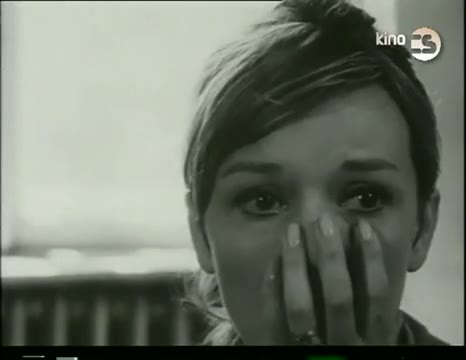Directed by:
Evald SchormScreenplay:
Evald SchormCinematography:
František UldrichComposer:
Jan KlusákCast:
Jan Kačer, Jana Brejchová, Jiří Menzel, Milan Morávek, Dana Medřická, Anna Lebedová, Antonín Lebeda, Jiřina Třebická, Jiří Kylián, Nina Divíšková (more)VOD (1)
Plots(1)
A psychological drama reflecting the existential anxiety and moral dilemmas of a seemingly successful, thirty-year-old engineer with an attractive wife and a good job in a project office, who - despite all this - attempts suicide. This disconcerting story of a deep psychological crisis of a man looking for his freedom and for his true self becomes a penetrating analysis of the desolate state of the whole society. (Summer Film School)
(more)Reviews (2)
“What’s stopping us?” Sometimes we simply don’t know something or we just don’t want to explain it at length, and we thus prefer to stay silent. There are not understandable reasons for everything and the absence of such reasons makes Jan the culprit in the eyes of others instead of the victim (with cool professionalism, only a doctor enquires about the reasons for Jan’s actions). He serves as a lightning rod for the weaknesses of others, who, by ardently rejecting his actions, displace their fear of deciding for themselves. Without compromises. Jan committed an offence against the absurd social requirement of “normalcy” and was branded a madman. His expression of freedom paradoxically leads to a greater lack of freedom. Others now watch him more closely. It’s as if, by freely living our own lives, we are deprived of the right to make decisions about our own innermost issues. The realisation that others make fools of us is taken to the extreme by the final chase, which is practically the only dramatic scene in an otherwise very subdued film. The theatrically simple direction, which in the scenes from the asylum bears the hallmarks of Schorm’s documentary work, allows the ideas to stand out over the images. However, this doesn’t mean that the mise-en-scène is muted. Due to the need to fill their lives with at least some sort of activity and to divert their attention in another direction, in several scenes the characters pick up an object while they speak and begin to repair it, for example. They are thus momentarily liberated by their fixation on tangible, more easily grasped objects. Though the actors are perfectly matched with their characters (and even have the same first names), Schorm doesn’t make it easy for us to identify with their situation. Hiding his emotions behind dark glasses, Jan is withdrawn and mostly speaks only when someone questions him. Though he does not allow us into his inner self, there is no doubt that that is where the main drama of the film takes place. Jan’s wife is his only connection to the outside world, which he does not understand and refuses to understand even though he cannot exist without it. Somewhat unfortunately, the narrative turns its focus toward her several times, thus diluting the dense atmosphere of the existential anxiety of a man who cannot escape (from himself). At the same time, however, Jan’s Samaritanism creates an important contrast to his suffering and raises the thought-provoking question of whether a woman is better qualified to bear the responsibility that a man has given up. 80%
()
I've read that supposedly this is Schorm's most accessible film for the audience. I'm hesitant because I have reviewed some of his films decently in the past, and The Seventh Day, the Eighth Night even impressed me at one point. The feeling from The Return of the Prodigal Son can be compared to the experience of a blind person visiting an art gallery. The film didn't anger me, disturb me, or depress me; it rather put me to sleep - and that is somewhat surprising in the late afternoon, as I cannot blame it on exhaustion or the late hour. An existential crisis is certainly a cunning thing, but this handling of it is exhausting for me. Maybe I'm also having a viewer crisis and a period where I prefer different genres and a different style of directorial work. I actually don't know what my one star is for, as I completely missed out on Schorm's vision as a filmmaker and his burnt-out human wreckage. Overall impression: 25%.
()

